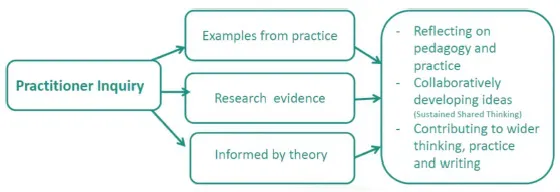
How to Recognise and Support Mathematical Mastery in Young Children's Play
Learning from the 'Talk for Maths Mastery' Initiative
Di Chilvers, Di Chilvers
- 252 pages
- English
- ePUB (adapté aux mobiles)
- Disponible sur iOS et Android
How to Recognise and Support Mathematical Mastery in Young Children's Play
Learning from the 'Talk for Maths Mastery' Initiative
Di Chilvers, Di Chilvers
À propos de ce livre
This book explains how young children develop mathematically in their earliest years and shows the support and teaching needed by adults to accelerate their progress and attainment, helping them master mathematical concepts and skills.
The practical guidance has been carefully developed over a number of years and is based on research undertaken with primary schools in Sheffield as part of the 'Talk for Maths Mastery' initiative. It recognises that children's mathematical development is embedded within child-led play and connected to deeper levels of thinking and wider dispositions for learning. Maths is happening everywhere at any moment; we just need to keep an open mind, open eyes, and listen.
Including case studies, links to practice and reflective questions, the chapters reveal what mastery orientation looks like from the children's perspective in their learning and covers:
-
- children's serve and return conversational talk
-
- mathematical babies and their developmental momentum
-
- schematic patterns of thinking
-
- mathematical mark-making
-
- child-led play
-
- problem solving
-
- creative and critical thinking
-
- how adults can support children's mathematical talk, thinking and mastery
This book will help all early years practitioners and teachers working with children throughout the EYFS and KS1 build their understanding, knowledge, experience and confidence of engaging in early mathematics.
Foire aux questions
Informations
1 What is Talk for Maths Mastery?
- What is Talk for Maths Mastery?
- What is an extended professional development initiative?
- How to get started with Talk for Maths Mastery?
- How to use the Talk for Maths Mastery tools and strategies in practice?
- What should you do with your research findings? What do they tell you about practice?
- Talk for Maths Mastery – Our story
What is Talk for Maths Mastery?
- Recognising that young children are competent and capable learners with their own learning momentum, intrinsically motivated to actively play, explore and engage in creative and critical thinking
- Supportive adults who know and understand how children develop and learn, including mathematical development from birth to 6+
- Providing an enabling environment which tunes into young children’s mathematical lines of development and their interests in ways that connect to familiar real life, authentic contexts
- Collaborative partnerships with parents and families based on real-life, everyday home learning experiences and culture
What is an extended professional development initiative?
- Why are we doing this?
- Why are we doing it this way?
- What difference will it make?

- working collaboratively as a community of learners
- talking, discussing and thinking together – engaging in our own sustained shared thinking (SST)
- having time to reflect together on what we do and why we do it that way
- sharing practice, ideas, stories
- co-constructing good practice
- making partnerships, networks, support, buddying, solidarity, friendships